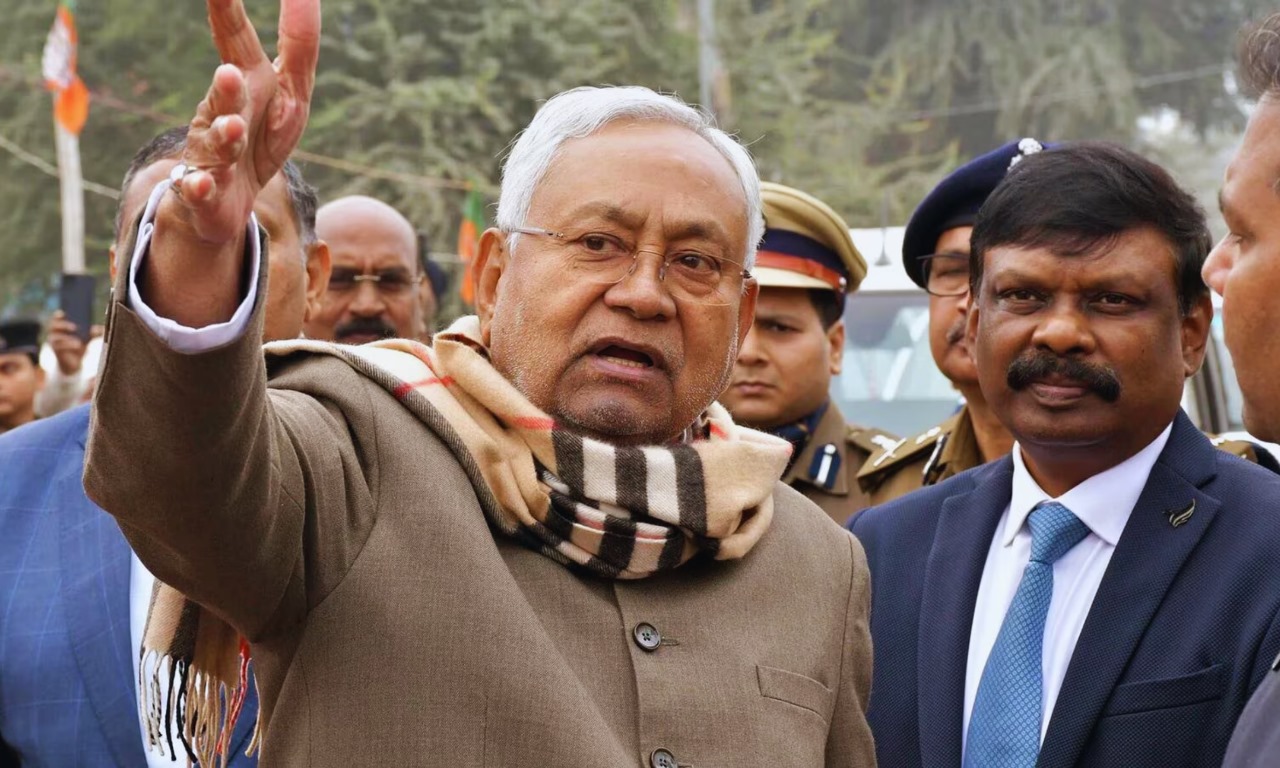JD(U) Withdraws Support from BJP-Led Manipur Government Amid Defection Row

The Janata Dal (United) [JD(U)], a key member of the National Democratic Alliance (NDA), has officially withdrawn its support for the BJP-led government in Manipur.
This decision, announced on Wednesday, follows a series of political developments in the northeastern state.
JD(U)’s Decision Explained
In a statement, Ksh. Biren Singh, JD(U)’s Manipur Chief, outlined the reasons for the withdrawal. He highlighted the events following the February/March 2022 State Assembly elections, in which JD(U) had six candidates elected.
“Within a few months, five of these MLAs defected to the BJP. The trial under the Tenth Schedule of the Constitution for these MLAs is pending before the Speaker’s Tribunal,” Singh stated.
The JD(U) emphasized that as part of its alignment with the INDIA alliance, it formally decided to end its support for the BJP-led government. The party informed the Governor’s office, the Chief Minister, and the Speaker about this decision.
“Our lone MLA in the Assembly, Md Abdul Nasir, was seated on the Opposition Bench in the last session of the Assembly by the Speaker,” Singh added. He reiterated that the JD(U) no longer supports the BJP-led state government and declared that Md Abdul Nasir would henceforth be treated as an Opposition MLA.
NPP Also Withdraws Support
This development follows the withdrawal of support by the Conrad Sangma-led National People’s Party (NPP) in November 2024. Sangma had criticized the BJP government’s handling of the ongoing crisis in Manipur.
In a letter to BJP National President JP Nadda, Sangma expressed his dissatisfaction, stating, “The government under Biren Singh has completely failed to resolve the crisis and restore normalcy.”
BJP’s Majority Remains Intact
Despite these setbacks, the BJP-led government in Manipur remains stable. The party holds 37 seats in the 60-member assembly and is supported by five MLAs from the Naga People’s Front and three independents, ensuring its majority.
JD(U) Leadership Reacts
Shortly after the JD(U) announced its withdrawal of support, the party’s national leadership took swift action. The JD(U) sacked its Manipur unit president, Ksh. Biren Singh, citing indiscipline.
Rajiv Ranjan, JD(U) national spokesperson, clarified that the decision to withdraw support was made without consulting the party’s central leadership.
Ranjan described the announcement as “misleading and baseless” and reiterated the party’s commitment to supporting the BJP-led NDA. “Our party has worked diligently to strengthen the NDA and will continue to do so,” he added.
Clarifications from JD(U) National Leadership
In an official statement, Ranjan emphasized that the Manipur unit’s decision was unauthorized. He noted, “The Manipur unit president did not communicate with the central leadership and acted independently. The party’s stance remains aligned with the NDA both at the Centre and in Manipur.”
The Lone MLA’s New Role
Following the withdrawal of support, the JD(U)’s lone MLA in Manipur, Md Abdul Nasir, was officially designated as an Opposition MLA.
In a letter to Chief Minister Biren Singh, Ksh. Biren Singh reiterated this position, stating that the party no longer supports the BJP-led government in Manipur.
The letter also referenced the defection of five JD(U) MLAs to the BJP after the 2022 elections and the ongoing trial under the Tenth Schedule of the Constitution.
Growing Tensions in Manipur
The political developments come against the backdrop of ongoing ethnic strife and violence in Manipur, which began in May 2023.
The BJP-led government under Chief Minister N Biren Singh has faced criticism from opposition parties, alliance partners, and even within its own ranks for its handling of the crisis.
The JD(U)’s withdrawal of support from the BJP-led government in Manipur has added a new layer of complexity to the state’s political landscape. However, with its majority intact, the BJP government remains stable for now.
The episode also underscores internal tensions within the JD(U) and raises questions about coordination between its state and national leadership.









